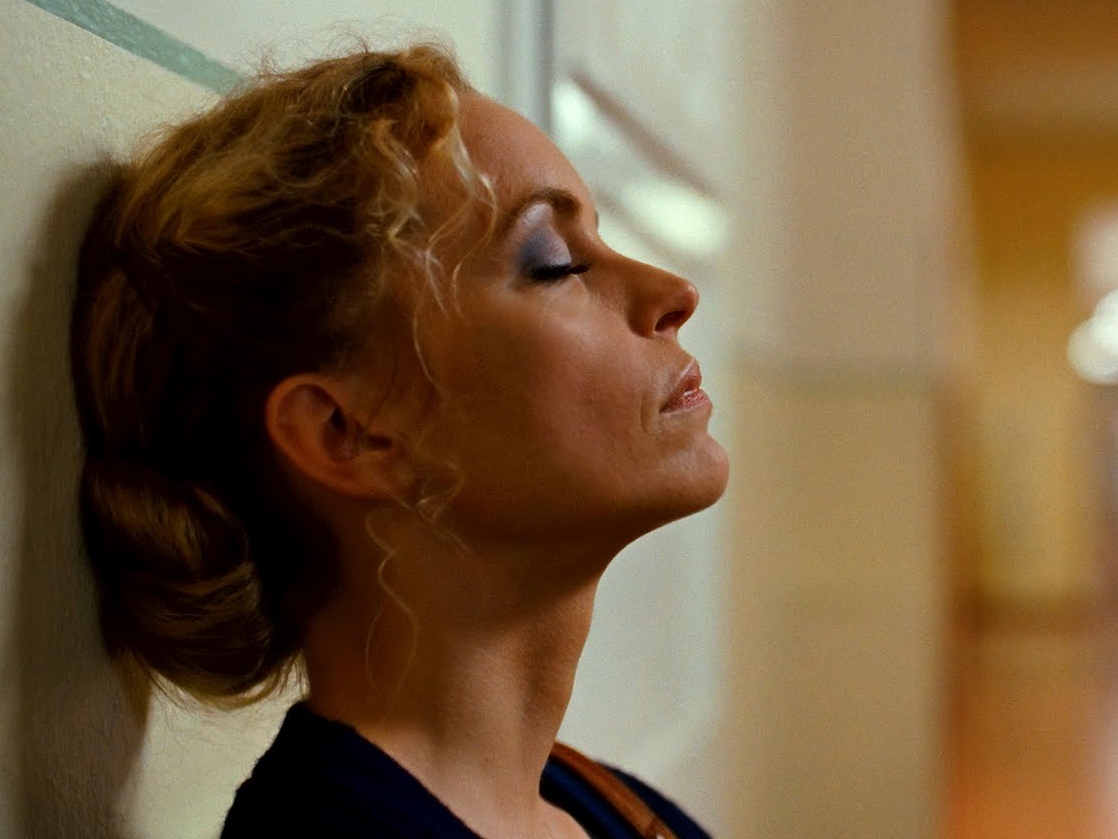The foreign language Academy Award nominee from Germany this year once again focuses on the dark decades the eastern half of the country endured while under Soviet influence.
Set in 1980, “Barbara” details the life of a doctor, Barbara Wolff (Nina Hoss), who has been transferred from Berlin to a regional hospital as punishment for applying for an exit visa from the country. In the remote town, under the ever watchful eyes of the East German secret police, the Stasi and their informants, she desperately plots an escape with the help of her western lover.
Barbara is tired in the way that a hunted animal is tired – she’s been alert too long, and the exhaustion from hiding her plans shows in her eyes and the general sadness and distrust in her demeanor. Whenever she escapes the Stasi watchers for a few hours of love and plotting with her boyfriend, she is forced to suffer the degradation of a complete house and strip search upon her return.
Despite the hardships she plans her escape, while spending her days working alongside the friendly doctor Andre (Ronald Zehrfeld), a Stasi informant infatuated with her. They work together helping numerous patients, most notably the young Stella (Jasna FritziBauer), a serial escapee from a nearby work camp who is expecting a child. Barbara takes the girl under her wing, seeing in her a similar urge for freedom.
But as the day to leave approaches, Barbara grows conflicted as her developing friendship with Andre and her distrust of her western friend’s intentions increase. She soon begins to not only question whether she can escape, but whether she wants to after all.
“Barbara” is quietly powerful, instilled with an emotional final turn nearly as compelling as the closing minutes of “The Lives of Others,” the 2007 Foreign Language Oscar winner, and also a German film.
Directed by the West German Christian Petzold, who grew up in free Germany during the height of the Cold War, “Barbara” captures the damp, gray atmosphere of Western Europe, but also the coldness of a restricted East Germany. The differences between East and West are depicted brilliantly in “Goodbye, Lenin!” – another German film, set just after the fall of the Berlin Wall – while here characters verbally discuss their lack of material goods with a little help from the camera to show the sparseness of their furnishings.
But the focus isn’t on a lack of possessions so much as a lack of privacy, of freedom.
Unlike “The Lives of Others,” with its thriller pacing, “Barbara” focuses on character development and relationships rather than the plot’s suspense. Petzold’s film has essentially no soundtrack, which keeps the emphasis on the characters themselves and not on the progressing plot. This makes each story twist personal, each new situation entirely character-driven.
Aside from a stellar performance from Hoss, Zehrfeld’s Andre is very accessible. He has the bearded, scraggly look of a 70s rocker, and his kind face makes him instantly likeable despite his connection to the Stasi.
As the film progresses, even the hardened officer who most carefully monitors Barbara’s activities becomes human. Self-sacrifice and budding relationships infuse power into the story’s end. Perhaps the one aspect of the film that undercuts its very premise and plot is the East Germany Petzold depicts, which is charming enough to make life there enjoyable, if you’re surrounded by the ones you love.

COMMENTS
Please let us know if you're having issues with commenting.